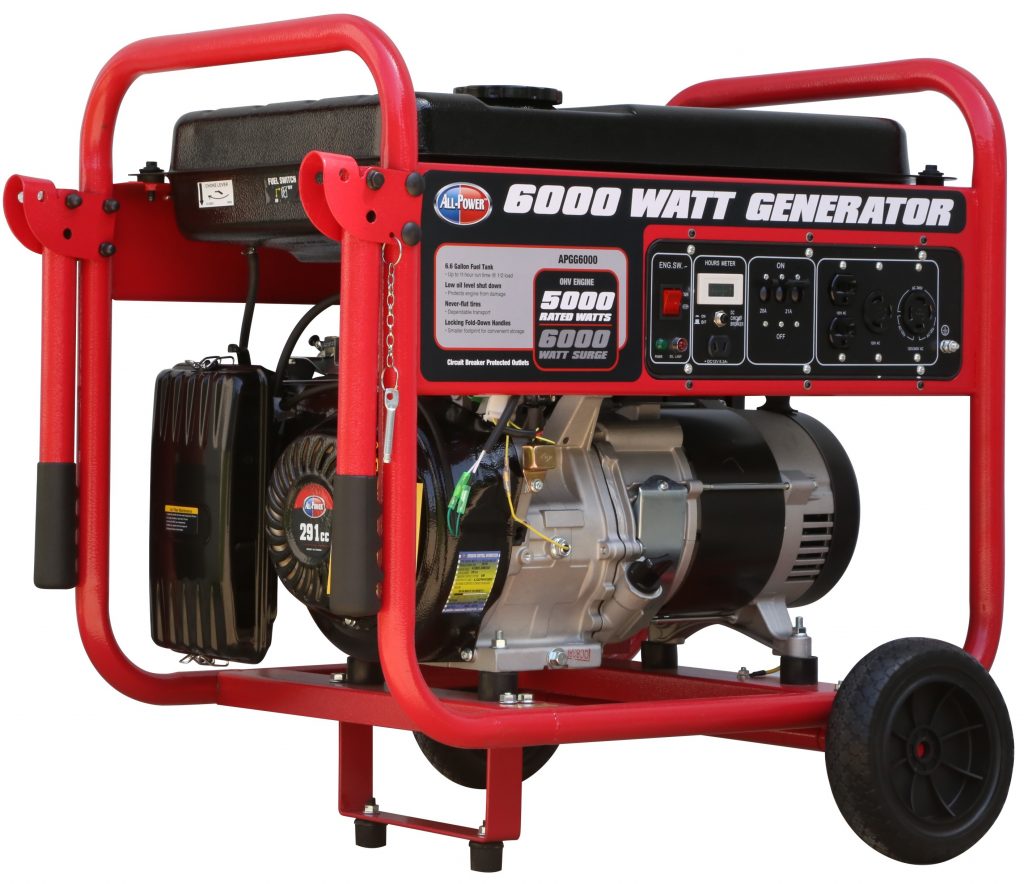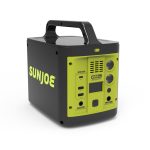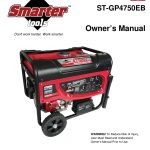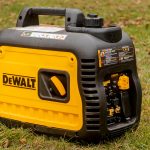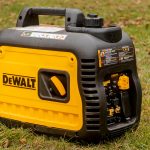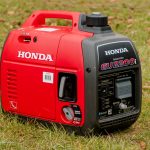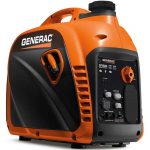An engine generator is a device that creates electrical energy from mechanical energy. It works by combining an engine and an electrical generator. The engine produces energy by burning fuel such as gasoline, diesel, or propane. This energy is used to turn the generator, creating electricity. The electricity is then used to power various sorts of equipment.
Engine generators are used in a variety of applications, from providing power to remote areas to back-up power in industrial settings. They are also used as a reliable source of power in times of emergency, such as natural disasters or blackouts. The engine generator has two important components: the engine and the generator. The engine is responsible for transforming fuel into mechanical energy. This energy is then used to turn the generator, which is responsible for transforming the mechanical energy into electrical energy. Engine generators are usually rated in terms of their power output in kilowatts. The size of the generator determines how much energy it can generate. In most cases, the engine generator is powered by either gasoline or diesel fuel. The engine generator is a highly efficient power source. It can produce a large amount of energy in a relatively short period of time. Furthermore, it is a reliable and cost-effective power source. It is an ideal choice for many applications, both commercial and residential.
What is a diesel engine generator?
This type of generator is typically used as an emergency power supply, as it can provide reliable power in the event of a power outage. A diesel engine generator is composed of several different components, including the diesel engine, fuel tank, generator, and control panel. The diesel engine is the heart of the generator, and it provides the power to the generator. The fuel tank stores the diesel fuel that is used to power the engine. The generator is responsible for producing the electrical output of the generator.
Lastly, the control panel allows the user to control the generator’s operation. Diesel engine generators are typically used in industrial or commercial applications. They are great for providing emergency power and are often used in hospitals, factories, and other businesses that need reliable power. Diesel engine generators are also used to power heavy vehicles, such as trucks, marine vessels, and industrial equipment. Diesel engine generators have several advantages over other types of generators. They are very efficient, require less maintenance, and produce less noise than other types of generators. Additionally, diesel engines are durable and can last for many years before needing to be replaced. Overall, diesel engine generators are an excellent choice for those looking for a reliable, efficient, and durable source of power. They are great for providing emergency power and are an excellent choice for businesses and heavy vehicles.
Can a generator run forever?
Engine generators are machines that generate power from a combustion engine. They are commonly used as an alternative to traditional power sources and can provide a reliable source of electricity in a variety of settings. A common question about engine generators is whether they can run forever. In theory, a generator could run forever, as long as it is properly maintained and supplied with fuel. However, in practice, engine generators are not designed to run indefinitely and will eventually require servicing or replacement.
Engine generators are affected by wear and tear, and it is important to follow the manufacturer’s maintenance guidelines in order to ensure the generator continues to run effectively. This includes regularly checking and changing the oil, coolant, and air filters, as well as checking the spark plugs and timing belts. In addition, engine generators need to be supplied with fuel such as gasoline, diesel, or propane. If the fuel runs out, the engine generator will stop operating. Therefore, it is important to ensure the fuel tank is regularly topped up and not allowed to run dry. Overall, engine generators can run for long periods of time, but they need to be carefully maintained and supplied with fuel in order to keep them running. With the correct maintenance and fuel supply, engine generators can be a reliable source of power.
What type of engine is in a generator?
Generators are equipment that converts mechanical energy into electrical energy. Generator engines are usually powered by either diesel or gasoline and can be found in a variety of sizes to suit the different power needs of generator users. Generator engines are typically designed with an electric starting system, which helps to ensure that the generator can start up quickly and easily. They also have a fuel injection system, which helps to optimize the engine’s performance. Additionally, many generator engines have a low noise output, meaning that they can be used in residential areas without causing a disturbance.
Generator engines are also designed to be reliable and durable. They are built to withstand long hours of operation and are designed to minimize maintenance needs. Generator engines typically come with a warranty, so you can be sure that your generator will be able to provide reliable power for a long period of time. In summary, a generator engine is an essential part of any generator. It is designed to provide power quickly and reliably, and is built to last. Generator engines are a great choice for anyone looking to power their generator.
What are the 2 types of generator?
Engine generators come in two types: stationary and portable. Stationary generators are mainly used to provide backup power in large scale settings, such as office buildings, factories and manufacturing plants. They are generally installed in a fixed location, and are more powerful and durable than portable generators. Portable generators are smaller and more versatile. These machines can provide temporary power to homes, businesses, and even recreational vehicles during a power outage.
They are powered by either gas or diesel, and can run for several hours depending on the fuel capacity. Portable generators are best suited for emergency situations, or for providing power to remote areas. Both types of engine generators are efficient and reliable sources of power.
What are the 4 types of generators?
Engine generators come in four main types. The first type is a diesel generator. These are commonly used for medium to large-scale power requirements and have higher fuel efficiency and emissions than other types. The second type is a gas generator, which is a popular choice for residential and commercial applications due to its availability and low cost. The third type is a petrol generator, which is usually used for lightweight applications and for emergency backup. The fourth type of engine generator is a steam turbine generator, which is often used in large industrial applications to generate electricity. All in all, these four types of engine generators are essential for a variety of applications, from powering homes to providing electricity to large-scale industries.
Is engine and generator same?
No, engine and generator are not the same thing. An engine generator is a combination of both an engine and a generator. It is a power source that provides power through combustion of fuel to a generator. This generator is then used to generate electric power. The engine generator is useful when there is an interruption in the power supply, as it can provide backup power without having to use a battery.
It is also used to provide power to remote areas, where other power sources are not available. Engine generators come in several sizes and types, including diesel and petrol. The engine generator runs on fuel and can be used for a variety of applications such as a standby power source for a house, for powering tools in a construction site, or for providing power to boats and motor homes. The engine generator is also used in some cars. It is used to power accessories such as air conditioning and lights, and also to recharge the car battery. Overall, an engine generator is a combination of both an engine and a generator, used to provide power in a variety of applications. It is different from just an engine or a generator, as it combines the two for a greater purpose.
What is the best portable generator for home use?
Engine generators are a great way to provide reliable power to your home in the event of a power outage. They are also great for outdoor activities, like camping or tailgating. When choosing the best portable generator for home use, it’s important to consider the size, wattage, and runtime of the generator. The size of the generator should be taken into account in order to make sure it can fit in the space you plan to use it in. For home use, a larger generator will provide more power, but portability is still important.
The wattage, or power output, of the generator should be enough to power the most important appliances you need to run in a power outage. Try to estimate how much power you will need and buy a generator that is capable of producing that amount. It’s also important to consider the runtime of the generator. This is the amount of time the generator will run before it needs to be refuelled. Generally, the more powerful the generator, the longer its runtime will be. Finally, think about the noise level of the generator. You don’t want to disturb your neighbours or be distracted from your activities. Look for a generator that has sound insulation and noise reduction technology to ensure a quiet and comfortable experience. Overall, the best portable generator for home use is one that is the right size, has enough wattage, has a good runtime, and is quiet. With a quality generator, you’ll be prepared for any power outages!
Can I make a generator from a car engine?
Engine generators are a great way to generate power, and one popular option is using a car engine. So the question is, can you make a generator from a car engine? The answer is yes, you can! A car engine can be converted into a generator by connecting its crankshaft to an alternator. This alternator will create an electrical current, which can then be used to power electrical appliances. You can even use the car battery to store the power generated by the engine. However, there are some important considerations to keep in mind when making an engine generator.
Firstly, you must ensure you have the correct parts and that they are compatible with the engine. Secondly, you should make sure you have the right wiring and connections set up. Finally, it is important to use a qualified electrician to do the wiring to ensure safety. In summary, it is possible to make a generator from a car engine, but it is important to ensure that all the parts are compatible, the wiring is correct, and a qualified electrician is used for wiring. With the right preparation and knowledge, you can easily create an engine generator.
Are Generac engines any good?
When it comes to engine generators, Generac is one of the best brands available. Their engines are reliable, powerful and durable, making them an excellent choice for a variety of applications. Generac engines are designed for maximum efficiency and performance, allowing them to produce an optimal amount of power for a variety of tasks. They are also designed to run for long periods of time without any issues. Another great feature of Generac engines is their low maintenance requirements.
They are designed to run without any major servicing for long periods of time, meaning you won’t have to worry about regular maintenance. Generac engines also come with a variety of features that make them even more reliable. For example, they come with an automatic shut off feature that will shut the engine off in case of an overload or other problem. This feature can help prevent damage to the engine and other parts. Overall, Generac engines are an excellent choice when it comes to engine generators. They are reliable, powerful and low maintenance, making them an ideal choice for a variety of applications.
Is Generac a good generator?
It offers a wide range of products that suits almost all types of generator needs. Generac’s engines provide long-term reliability, making them an excellent choice for those who need a reliable power source. The company also offers comprehensive warranties, making it one of the most reliable engine generator brands on the market. Overall, Generac is a great choice for those who need a reliable and powerful engine generator. Its products are known for their durability and performance, making it a great investment for anyone looking for an engine generator.
What kind of engines are in generators?
Engine generators are powered by engines to generate electricity. Typically, there are two types of engines used in engine generators; diesel and gasoline. Diesel engines are widely used in engine generators because they are more powerful, reliable, and efficient than gasoline engines. They are also more durable, as diesel engines can run for longer periods of time without needing repairs. Gasoline engines, on the other hand, are more affordable, but also less reliable and efficient than diesel engines.
They are typically used in smaller engine generators, such as those used for residential power. In addition to the type of engine, the size of the engine is also important. For larger engine generators, a high-capacity engine is needed to produce enough electricity for large operations. Smaller engine generators require smaller engines that are powerful enough to generate enough electricity for smaller operations. Overall, engine generators are powered by either diesel or gasoline engines of varying sizes, depending on the generator’s purpose and size. By choosing the right type and size of engine, engine generators can be used to generate electricity efficiently and reliably.
How long do generator engines last?
Engine generators are reliable and powerful devices that are designed to last for a long time. On average, a generator engine may last for up to 15-20 years with proper maintenance and occasional servicing. The engine life may vary depending on the quality of the engine, the type of fuel used and the frequency of usage. Regular oil changes, keeping the generator clean and running it regularly can help to extend the life of the engine. It is also important to perform regular inspections on the engine to ensure it is running efficiently and not facing any issues.
In addition, it is important to choose the right size engine for the specific application. This will ensure the engine doesn’t get overloaded or overworked, which can lead to a shorter life. Overall, a generator engine can be expected to last a long time if it is properly maintained and serviced. A generator engine that is serviced regularly, kept clean and managed well can last for up to 15-20 years.
How do I choose a generator engine?
Choosing a generator engine can be a daunting task, but with the right information, you’ll be able to find the engine that best suits your needs. First, consider the size of the engine, as this will affect the generator’s overall power output and the amount of energy you can generate. You will also need to think about the fuel type that the engine runs on, as different fuels have different energy outputs. Next, look at the engine’s noise output, as this will affect how you use your generator. You may want to choose a quieter engine so that you are not disturbed by noise pollution.
In addition, it is important to consider the maintenance required for the engine. Some engines require a lot of maintenance and may be expensive to keep in good working order. Finally, take into account the cost of the engine and the warranty. You want to ensure that you are getting a reliable engine that will last for many years. By considering these factors, you will be able to find the perfect generator engine for your needs.
Which type of engine is used in generator?
The type of engine used in an engine generator varies depending on the needs of the generator. Typically, gasoline engines are used in small portable generators, while diesel engines are used in larger stationary generators. Diesel engines tend to be more fuel efficient and are better suited to remote locations where refueling may be difficult. In larger industrial generators, natural gas or propane engines are used due to their lower cost of operation and emissions. These engines are often used in applications that require continuous operation such as hospitals, factories, and data centers.
For applications such as backup power, diesel engines are usually the preferred option as they are reliable and have low maintenance requirements. Diesel generators are also often used in remote locations as they are non-polluting and can be refueled by smaller tanks. No matter the type of engine used, engine generators are a practical and cost-effective solution for producing power. With the right generator, an engine can be used to generate energy in a variety of settings, from small residential sites to large industrial facilities.
How does a generator engine work?
Engine generators are a common source of power and are used to generate electricity. They work by converting mechanical energy into electrical energy. At the heart of an engine generator is an internal combustion engine, which powers the generator. This engine runs off of a fuel source, such as petrol or diesel. The power from the engine is then turned into electricity via an alternator.
The engine is connected to a generator rotor, which contains electromagnets, typically made of copper wire. As the engine rotates the rotor, the movement of the magnets creates an alternating current that is channeled through the generator’s stator and rectifier to create electricity. The electricity generated can then be used to power various appliances and devices. In addition to powering individual homes, engine generators can be used to provide power to entire communities or even businesses. Engine generators are a reliable and convenient source of energy. They are easy to maintain and can be used in remote locations where no other power sources are available. Engine generators are an important part of the global power supply and will continue to be an essential part of our lives.
Is a generator just an engine?
Engine generators are an important part of many systems, from power generation to industrial and consumer electronics. They are basically composed of two parts: an engine, and a generator. The engine is responsible for turning mechanical energy into electrical energy. This is done by using fuel and turning a shaft, which then rotates the generator. The generator is the part that actually produces the electricity.
It consists of a coil of wire wound around a core, and when the shaft is rotated, it produces an electrical current in the coil. This current is then outputted to be used as power. So, to answer the question, yes, a generator is essentially an engine. It is the engine that supplies the necessary energy to turn the generator, which then produces the electrical current. Without the engine, the generator would be unable to do its job and no electrical current would be generated. Therefore, a generator is just an engine with a specialized purpose.
What are the 2 types of generators?
Engine generators are a great way to power machinery and equipment. They come in two primary types: portable generators and standby generators. Portable generators are small in size and can be moved easily. They are typically used to power smaller machines and tools, or provide backup power in case of a power outage. Standby generators are much larger and heavier and are better suited to providing long-term, reliable power.
Generally, they are installed at a fixed location and can be used to power specialized equipment or entire buildings. Both types of generators are powered by an internal combustion engine. This engine works by using a fuel source such as gasoline, propane, or natural gas to create energy which in turn powers the generator. Ultimately, the choice of which type of generator to use depends on the application and the power needs. Portable generators are great for small jobs and backup power, while standby generators are better suited for larger, long-term power needs.
What are the 3 main components of a generator?
Engine generators are a type of machine used to convert mechanical energy into electrical energy. They consist of three main components: the alternator, the power source, and the control system. The alternator is the main component of the generator, which converts mechanical energy into electrical energy. It is composed of a set of electromagnets and wire coils which rotate at a high speed. The alternator generates AC power, which then passes through the power source, such as a fuel tank, to be converted into DC power.
The power source supplies the energy needed for the alternator to produce electricity. This power source can be a gas or diesel engine, a turbine, or a battery. The power source is responsible for driving the alternator to create electricity. The control system is the third component of the engine generator. This system monitors and controls the operation of the generator. It helps regulate the amount of electricity that is produced, as well as provides protection against overloading and short-circuiting. The control system is also responsible for maintaining the proper frequency of the electricity that is generated. In summary, engine generators consist of three main components: the alternator, the power source, and the control system. Together these components work together to convert mechanical energy into usable electricity.
